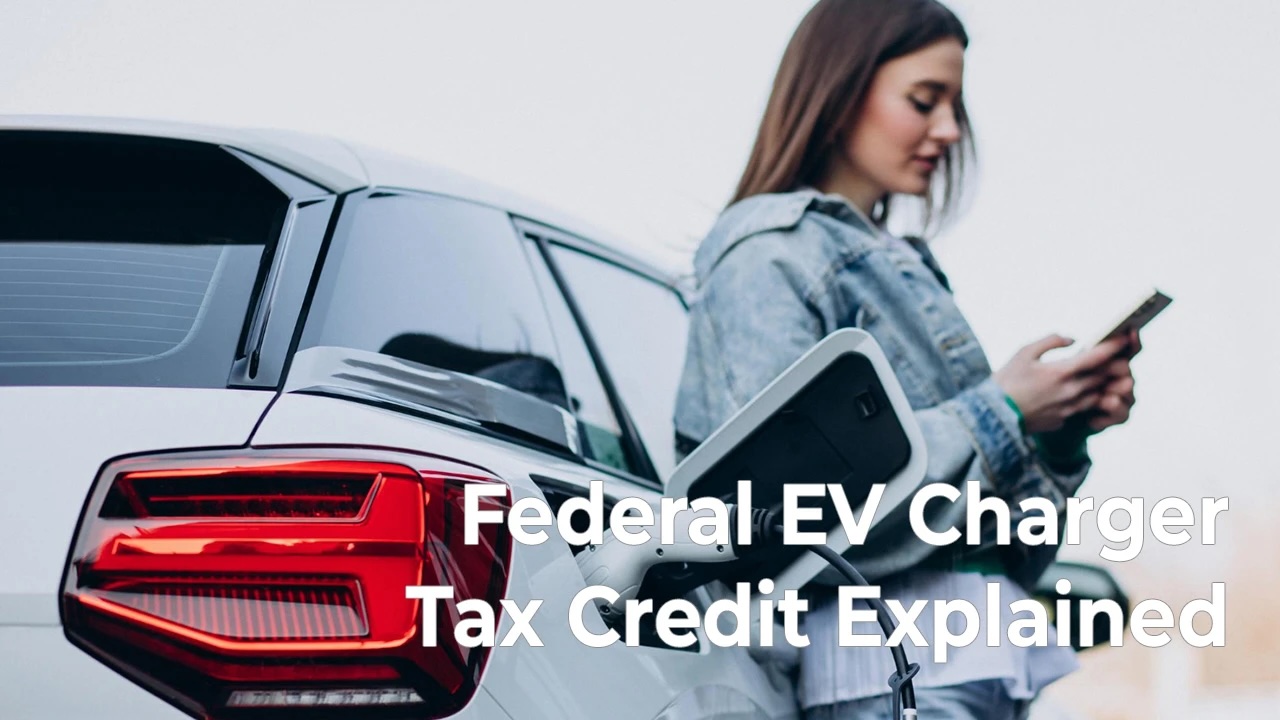As electric vehicles (EVs) continue to grow in popularity across Texas, more homeowners are exploring convenient and affordable charging options. To support this transition, the federal government introduced the Alternative Fuel Refueling Property Tax Credit, commonly known as the EV charger tax credit. This program makes it easier and more affordable for homeowners and businesses to install EV chargers while promoting a cleaner, more sustainable future.
Learn all about how the federal EV charger installation tax credit works, what it covers, and how Houston residents can take full advantage of available incentives.
What Is the Federal EV Charger Tax Credit?
The EV charging tax credit—officially called the Alternative Fuel Refueling Property Tax Credit—allows homeowners and businesses to deduct 30% of the total cost of purchasing and installing an EV charger.
- Homeowners can claim up to $1,000 in tax credit.
- Businesses can claim up to $100,000 per installation.
⚠️ Important Update (2025):
Under the most recent federal rule changes, this incentive will expire on June 30, 2026.
Previously, the credit was available through 2032, but the timeline has now been shortened. That means homeowners and business owners in Texas have just over a year to take advantage of this valuable incentive before it ends.
This federal program remains one of the most effective ways to reduce upfront EV charger installation costs and make the switch to electric more affordable.
Learn more about how this incentive works in detail on Federal EV Charger Tax Credit Explained.
Who Qualifies for the EV Charger Tax Credit?
To be eligible for the federal tax credit, your charger must meet a few key requirements:
- Installed on your property: The charger must be installed at a location you own or lease, such as your home or business.
- Certified and compliant: Equipment must meet all safety standards under the National Electric Code (NEC) and be certified by Underwriters Laboratories (UL) or an equivalent testing organization.
- Used primarily for EVs: The charger should be used mainly for charging electric or plug-in hybrid vehicles.
Meeting these requirements ensures homeowners and business owners in Texas can confidently claim the federal incentive while ensuring a safe and compliant installation.
Why It’s Great for Texas Homeowners and Businesses
For many Texans, the initial cost of installing an EV charger is the main barrier. The federal EV charger installation tax credit helps offset those costs by reducing the overall expense of equipment, labor, and permitting.
- For homeowners: It makes EV ownership more convenient and practical.
- For businesses: Installing EV chargers can attract more customers, support employees who drive EVs, and even qualify for additional tax deductions.
Whether you want to charge your EV faster at home or increase the value of your commercial property, this incentive makes the investment financially smart and future-focused.
How to Claim the EV Charging Tax Credit
Claiming the credit is straightforward but requires keeping proper documentation. Here’s how to do it:
- Save all receipts for equipment purchases and installation.
- Complete IRS Form 8911 (Alternative Fuel Vehicle Refueling Property Credit) when filing your federal tax return.
- Apply in the same year your charger was installed and activated.
- Include labor costs, as they qualify for the credit.
Remember: this is a non-refundable tax credit, meaning it reduces the amount of tax you owe but won’t result in a refund if the credit exceeds your tax liability.
Additional Incentives in Houston and Texas
While Texas doesn’t currently have a statewide EV charger rebate, several local programs can further reduce installation costs:
- Entergy Texas eTech Program: Offers a $250 rebate for installing a Level 2 home EV charger.
- Gexa Energy: Provides bill credits for charging during off-peak hours (11 p.m. – 5 a.m.).
- Local utility rebates: Some municipal utilities offer time-of-use rates or small rebates for EV charger installations.
As a Houston-based solar and EV charging company, Solstice Solar helps homeowners navigate these programs to ensure they receive all eligible rebates and tax credits. The team’s certified installers assist with setup, documentation, and filing for federal credits.
Act Now Before the Credit Expires
If you’re considering installing an EV charger, now is the time to act. With the federal EV charger tax credit ending on June 30, 2026, homeowners and businesses across Texas have a limited window to save.
Solstice Solar can help you secure your installation, ensure all eligibility requirements are met, and handle the paperwork—so you can maximize savings before the deadline.
Maximize Your Savings with Solstice Solar
Combining federal, local, and utility incentives can significantly reduce the total cost of EV charger installation. Solstice Solar specializes in helping Texans transition to renewable energy solutions—whether it’s solar panels, battery systems, or EV charging setups.
If you’re in Houston or anywhere in Texas, Solstice Solar’s certified team makes the process easy, affordable, and fully compliant with federal and local standards.
Final Thoughts
The federal EV charger tax credit is one of the simplest and most valuable ways to make EV ownership more affordable. By understanding eligibility, keeping accurate documentation, and working with a trusted local installer like Solstice Solar, you can maximize your savings and take a major step toward cleaner transportation.
Ready to install your EV charger and claim your federal tax credit?
Contact Solstice Solar today to schedule a free consultation.






